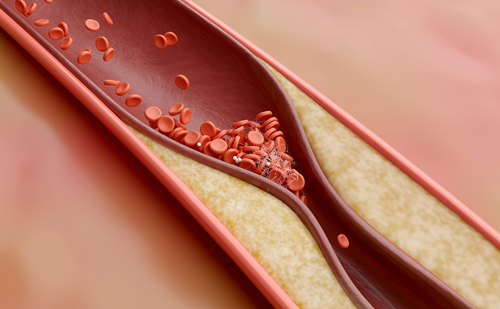Effects of N-acetyl-cysteine on endothelial function and inflammation in patients with type 2 diabetes mellitus
Abstract:
Overview
Endothelial dysfunction has been associated
with premature vascular disease. There is
increasing data that N-acetyl-cysteine (NAC)
may prevent or improve endothelial dysfunction.
The aim of this study was to assess the
effects of NAC on endothelial function in
patients with type 2 diabetes mellitus, a population
at high risk for endothelial dysfunction.
Twenty-four patients with diabetes mellitus
were assigned randomly to initial therapy with
either 900 mg NAC or placebo twice daily in a
double-blind, cross-over study design. Flowmediated
vasodilation (FMD) of the brachial
artery was assessed at baseline, after four
weeks of therapy, after a four-week wash-out period, and after another four weeks on the
opposite treatment. Plasma and red blood cell
glutathione levels and high-sensitivity C-reactive
protein (CRP) were measured at all four
visits. At baseline, FMD was moderately
impaired (3.7±2.9%). There was no significant
change in FMD after four weeks of NAC
therapy as compared to placebo (0.1±3.6% vs.
1.2±4.2%). Similarly, there was no significant
change in glutathione levels. However, median
CRP decreased from 2.35 to 2.14 mg/L during
NAC therapy (p=0.04), while it increased from
2.24 to 2.65 mg/L with placebo. No side effects
were noted during the treatment period. In
this double-blind, randomized cross-over
study, four weeks of oral NAC therapy failed to
improve endothelial dysfunction in patients
with diabetes mellitus. However, NAC therapy
decreased CRP levels, suggesting that this
compound may have some efficacy in reducing
systemic inflammation.
Keywords
Endothelial function, diabetes mellitus, randomized trial, N-acetyl-cysteine.
Article:
Article Information:
Correspondence
Allen Jeremias, Stony Brook University Medical Center Health Science Center, T16-080 Stony Brook, NY 11794, USA E-mail: allen.jeremias@stonybrook.edu
Acknowledgements
This study was supported in
part by the National Institute of Health Grant RR-
01032 to the Beth Israel Deaconess Medical
Center General Clinical Research Center. A.J.
was supported by the Clinical Investigator
Training Program, Beth Israel Deaconess Medical
Center, Harvard/MIT Health Sciences and
Technology, Boston, Massachusetts in collaboration
with Pfizer Inc., and Merck & Co. Inc.
Received
2009-07-07







